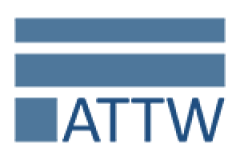The Nell Ann Pickett Award is given each year to the best article published in the ATTW journal. Judges for the award are previous award winners. The award carries a cash prize of $250. It is named for a founding member of the association who initiated the award and originally funded it.
2023
“Handling Family Business: Technical Communication Literacies in Black Family Reunions” by Laura Allen
“(Re)Framing Multilingual Technical Communication with Indigenous Language Interpreters and Translators” by Laura Gonzales
2022
(2021) Student Recruitment in Technical and Professional Communication Programs, Technical Communication Quarterly, 30:1, 1-18, DOI: 10.1080/10572252.2020.1774660
Honorable Mention: (2021) “Are You Authorized to Work in the U.S.?” Investigating “Inclusive” Practices in Rhetoric and Technical Communication Job Descriptions, Technical Communication Quarterly, 30:2, 107-122, DOI: 10.1080/10572252.2020.1829072
2021
(2020) Visualizing Chinese Immigrants in the U.S. Statistical Atlases: A Case Study in Charting and Mapping the Other(s), Technical Communication Quarterly, 29:1, 1-17, DOI: 10.1080/10572252.2019.1690695
2020
Avery C. Edenfield, Steve Holmes & Jared S. Colton (2019) Queering Tactical Technical Communication: DIY HRT, Technical Communication Quarterly, 28:3, 177-191, DOI: 10.1080/10572252.2019.1607906
2019
Molly M. Kessler & S. Scott Graham (2018) Terminal node problems: ANT 2.0 and prescription drug labels, Technical Communication Quarterly, 27:2, 121-136, DOI: 10.1080/10572252.2018.1425482
2018
Colton, Jared S., Steve Holmes and Josephine Walwema. (2017). From NoobGuides to #OpKKK: Ethics of Anonymous’ Tactical Technical Communication. Technical Communication Quarterly, 26.1, 59-75.
2017
Jones, Natasha, Kristin Moore, and Rebecca Walton. (2016). Disrupting the Past to Disrupt the Future: An Antenarrative of Technical Communication. Technical Communication Quarterly, 25.4, 211-229.
2016
Walton R., Zraly M., Mugengana J. P. (2015) Values and Validity: Navigating Messiness in a Community-Based Research Project in Rwanda. Technical Communication Quarterly 24.1, 45–69.
2015
Pigg, Stacey. (2014). Coordinating Constant Invention: Social Media’s Role in Distributed Work. Technical Communication Quarterly, 23.2, 69-87.
2014
Ding, Huiling. (2013). Transcultural Risk Communication and Viral Discourses: Grassroots Movements to Manage Global Risks of H1N1 Flu Pandemic.Technical Communication Quarterly, 22.2, 126-149.
2013
Simmons, Michele. “Productive Usability: Fostering Civic Engagement and Creating More Useful Online Spaces for Public Deliberation” Technical Communication Quarterly, 21.3 251-276.
and
Zoetewey, Meredith. “Productive Usability: Fostering Civic Engagement and Creating More Useful Online Spaces for Public Deliberation” Technical Communication Quarterly, 21.3 251-276.
2012
Reeves, C. (2011). “Scientific Visuals, Language, and the Commercialization of a Scientific Idea.” Technical Communication Quarterly, 20, 239-273.
2011
Selber, S. (2010). “A Rhetoric of Electronic Instruction Sets.” Technical Communication Quarterly, 19, 95-117
2010
Graham, S. S. (2009). “Agency and the Rhetoric of Medicine: Biomedical Brain Scans and the Ontology of Fibromyalgia”, Technical Communication Quarterly, 18: 4, 376 — 404.
2009
Mirel, B., Barton, E., and Ackerman, A. (Jul-Sep 2008). “Researching Telemedicine: Capturing Complex Clinical Interactions with a Simple Interface Design.” Technical Communication Quarterly, 17:3, 358-378.
2008
Swarts, J. (2007). “Mobility and Composition: The Architecture of Coherence in Non-places.” Technical Communication Quarterly, 16: 3, 279 — 309.
2006
Sun, Huatong. “The Triumph of Users: Achieving Cultural Usability Goals With User Localization.” TCQ 15.4 (Fall 2006): 457-481.
2005
Spinuzzi, Clay. “Lost in the Translation: Shifting claims in the migration of a research technique” TCQ 14.4 (Fall 2005): 411-446.
2004
Rude, Carolyn. “Toward an Expanded Concept of Rhetorical Delivery: The Uses of Reports in Public Policy Debates.” TCQ 13.3 (Summer 2004): 271-288.
2003
Baake, Kenneth. “Archaeology Reports: When Context Becomes an Active Agent in the Rhetorical Process” TCQ 12.4 (Fall 2003): 389-403.
2002
Palmer, Jacqueline S., and M. Jimmie Killingsworth. “Research and Consulting in Technical Communication.” TCQ 11.4 (Fall 2002): 389-409.
2001
Blakeslee, Ann M. “Bridging the Workplace and the Academy: Teaching Professional Genres through Classroom-Workplace Collaborations” TCQ 10.2 (Spring 2001): 169-192.
2000
Sullivan, Dale L. “Keeping the Rhetoric Orthodox: Forum Control in Science.” TCQ 9.2 (Spring 2000): 125-46.
1999
Kynell, Teresa. “Technical Communication from 1850-1950: Where Have We Been?” TCQ 8.2 (Spring 1999): 143-51.
and
Staples, Katherine. “Technical Communication from 1950-1998: Where Are We Now? TCQ 8.2 (Spring 1999): 153-64.
and
Killingsworth, M. Jimmie. “Technical Communication in the 21st Century: Where Are We Going?” TCQ 8.2 (Spring 1999): 165-74.
1998
Jeffrey T. Grabill and W. Michele Simmons. “Toward a Critical Rhetoric of Risk Communication: Producing Citizens and the Role of Technical Communicators.” TCQ 7.4 (Fall 1998): 415-441
1997
Durack, Katherine T. “Gender, Technology, and the History of Technical Communication.” TCQ 6.3 (Summer 1997): 249-60.
1996
Johnson-Eilola, Johndan. “Relocating the Value of Work: Technical Communication in a Post-Industrial Age.” TCQ 5.3 (Summer 1996): 245-70.
1995
Waddell, Craig. “Defining Sustainable Development : A Case Study in Environmental Communication.” TCQ 4.2 (Spring 1995): 201-16.
1994
McShea, Daniel. “Evolutionary Trends and the Salience Bias (With Apologies to Oil Tankers, Karl Marx, and Others.” TCQ 3.1 (Winter 1994): 21-38.
1993
Bosley, Deborah. “Cross-Cultural Collaboration: Whose Culture Is It Anyway?” TCQ. 2.1 (Winter 1993): 51-62.
and
Thrush, Emily A. “Bridging the Gaps: Technical Communication in an International and Multicultural Society.” TCQ 2.3 (Summer 1993): 271-83.
1992
Tebeaux, Elizabeth and M. Jimmie Killingsworth. ” Expanding and Redirecting Historical Research in Technical Writing: In Search of Our Past.” TCQ 1.2* (Spring 1992): 5-32.
1991
Dragga, Sam. “Responding to Technical Writing.” TWT 18.3 (Fall 1991): 202-21.
1990
Killingsworth, M. Jimmie and Preston Lynn Waller. “A Grammar of Person for Technical Writing.” TWT 17.1 (Winter 1990): 26-40.
1989
Rentz, Kathryn. “Literary Genre Theory and the Teaching of Professional Writing Forms.” TWT 16.3 (Fall 1989): 196-208.
1988
Redish, Janice C. “Reading To Learn To Do.” TWT 15.3 (Fall 1988): 223-33. 1988
1987
Coney, Mary B. “Contemporary Views of Audience: A Rhetorical Approach.” TWT 14.3 (Fall 1987): 319-36.
and
Corey, Jim and M. Jimmie Killingsworth. “The Internship Report.” TWT 14.2 (Spring 1987): 133-41.
1986
Ramey, Judith. “Developing a Theoretical Base for On-line Documentation, Part I: Building the Theory.” TWT 13.2 (Spring 1986): 148-59.
and
Ramey, Judith. “Developing a Theoretical Base for On-line Documentation, Part II: Applying the Theory.” TWT 13.3 (Fall 1986): 302-15.
1985
Jones, Dan. “A Rhetorical Approach for Teaching the Literature of Scientific and Technical Writing.” TWT 12.2 (Fall 1985): 115-125.
